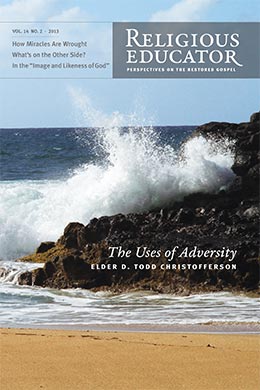Quality Control and the Religious Educator
Editor's Note
Most, if not all, manufacturing and service processes use one or more forms of quality control. That is, they have systems in place to assure a certain level of acceptable, quality outcome. Formal publications similarly pass through a variety of quality assurance checks. One of these checks is peer review. By definition, peer review is performed by individuals who are professional peers of an author. These reviewers help gauge the accuracy and clarity of an article’s content and the value of its contribution. The Religious Educator also requires reviews by peers who are qualified to address the doctrinal accuracy of a submission. Reviewers do not have to completely agree with an author’s academic assertions, but such assertions do need to be supported with careful research, methodology, and reasoning.
The RSC has created two review boards for the Religious Educator, one which considers submissions dealing with ancient scripture and related topics, and one which considers submissions focusing on “modern” topics such as Church history and scripture, world religions, and pedagogy. Each board consists of three to four readers judged by us to be professionally and religiously capable to provide quality preliminary assessment of the merits of articles submitted to the Religious Educator. Only after positive initial assessment by one of these boards will an article be sent out for formal, in-depth review.
The majority of articles published in future issues of the Religious Educator will have been screened by one of these two review boards. This represents one of our efforts to provide ongoing quality assurance for this publication. Peer review is not always foolproof, but we trust that the efforts of our two review boards will bear quality fruit in issues to come.
Dana M. Pike
Editor
